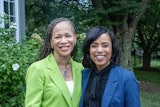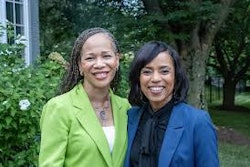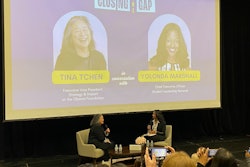Children as early as preschool age discern the unequal household labor dynamics in their families and view it as fair, even across different cultures, according to findings from a recent study published in Proceedings of the National Academy of Sciences. Dr. Allegra Midgette
Dr. Allegra Midgette
The recently published study examined households from both China and the U.S. to gauge potential differences given the countries’ different cultural, socio-political, and economic contexts and gender equality rankings. In both cultures, women do the majority of household work despite having relatively high labor market involvement, according to the study.
"We tend to focus on adults. A lot of the work on household labor is focusing on the consequences of this labor, particularly on women,” said study co-author Dr. Allegra J. Midgette, an assistant professor in Texas A&M University’s department of psychological and brain sciences. “Tends to be women who are doing this across cultures, across social-economic statuses, across time.”
Researchers for the study interviewed 215 three to 10-year-old children – 106 located in China and 109 in the U.S. – and their caregivers – 187 mothers, 27 fathers, and 1 gender not reported – about which parent did more of the household tasks, with the scope of the study only looking at children from opposite-sex two-parent families.
Adult respondents from both cultures reported that the mothers performed most of the household labor, and the same was found for the child respondents as well.
The interviewees were also asked whether they thought such labor distributions were fair. Adults reported it as fair, normalizing the inequality, with those from the U.S. more likely to report it as so.
“Qualitative responses suggested that this may reflect a cultural difference in applying fairness norms to family considerations (with Chinese parents being more hesitant to do so),” the study noted.
The children surveyed reported “strikingly similar” responses to their parents, according to the study. Not only did children from both cultures report that the mothers did the majority of household tasks, but they normalized that labor distribution and viewed it as fair.
Though the three-year-olds might not be as aware of how their family operates, children around the ages of four or five do, said study co-author Dr. Nadia Chernyak, an assistant professor in University of California, Irvine’s department of cognitive sciences.
"Every single kid pretty much, at both cultures, of every age we tested, said that it was fair,” Chernyak said.
According to the study’s authors, children seeing this inequality can result in future negative behaviors, such as girls’ expectations of inequality and fewer girls in STEM careers.
"As young as four, kids are recognizing, paying attention, [and] noticing what's happening in their household and they're accurate. They are seeing this labor,” Midgette said. “We already know that at age six, young girls already expect themselves to do more of this household labor in their future family, future life, and has implications for careers and family lives."
The findings indicate that preschool age is a key time in a child’s development during which conversations about gender norms and household labor are important, the authors wrote.
“To be clear, our work cannot—and does not—make normative claims about what ought to happen within the family, nor about whether the inequality reported is, in fact, unfair,” the report wrote. “Instead, we believe our work points to the critical value of discussing with young children about the structural, family, and personal causes of gendering of labor and provides evidence of preschool age as an appropriate developmental time window during which to do so. Without such discussion, young children may be left to infer their own pernicious biases and conclusions and may ultimately perpetuate these inequalities in their own and others’ futures.”
People seem to normalize certain types of inequalities in general society, Chernyak said.
“Sometimes, we talk a lot about fairness and then we're also not always behaving in ways that seem fair and we live in societies that seem wildly unequal or unfair," she said.
In her work, Midgette said she had found that older populations, adults, can have sentiments of viewing families as being about love and taking care of each other, regardless of inequality.
"At face value, it sounds great,” she said. “But in reality, we know there are direct consequences to someone doing all this labor. It's still work. So it's not just that they love you. They're actually having to sleep less, eat less. There's a lot of labor involved in it."
Such labor inequalities are linked to issues such as greater depression, suicidality, and marital conflict, Midgette said.
"In my work, I'm trying to move towards learning how do we learn to care,” Midgette said. “If we're saying fairness doesn't matter, that's not going to work to get people to think about how to challenge this inequality. How can we get more people to want to care within the family so it doesn't fall on one person to take on all this labor?"















